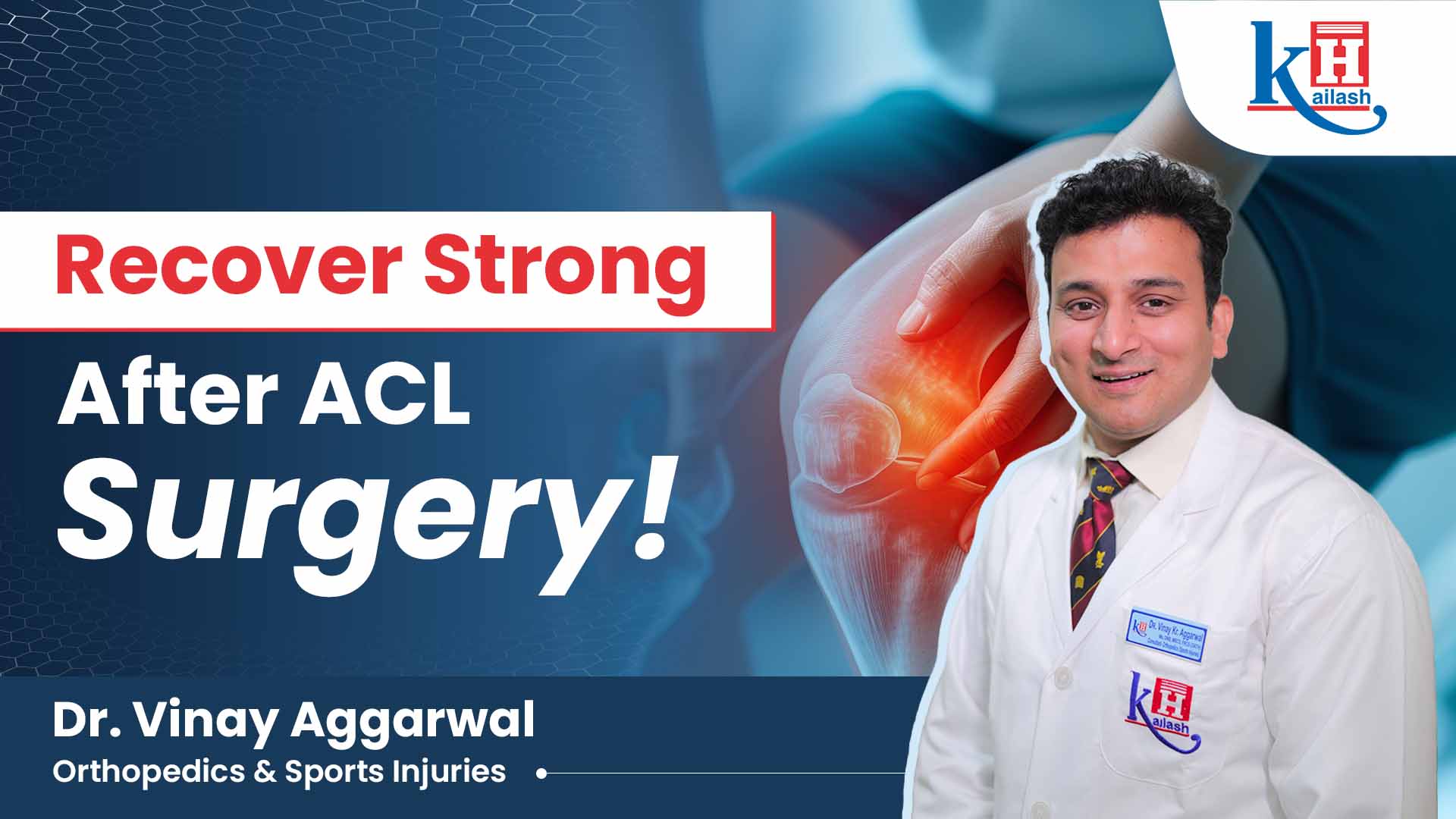The Future of Surgery: Why Laparoscopic Surgery proved to be a Game Changer over Traditional Methods
Verified By Dr. G.P. Gupta | 26-Dec-2024
In recent years, medical advancements have drastically transformed the landscape of surgery, and one of the most significant breakthroughs is the rise of laparoscopic surgery. Often referred to as minimally invasive surgery, laparoscopic procedures offer patients a host of benefits compared to traditional open surgery. With Kailash Hospital & Heart Institute leading the charge in this domain, laparoscopic surgery is now becoming the preferred choice for various surgical conditions.
Dr. G.P. Gupta, Sr. Laparoscopic & General Surgeon at Kailash Hospital, Noida, is a renowned expert in this field. He believes that laparoscopic surgery offers patients several advantages, including reduced recovery time, fewer complications, and less scarring. In this article, we will delve deeper into the key benefits of choosing laparoscopic surgery over traditional methods and why more patients are opting for this modern approach.
Table of Content
Laparoscopic surgery, also known as keyhole surgery, involves making small incisions in the body through which a camera and specialized instruments are inserted to perform the surgery. Unlike traditional open surgery, which requires a large incision, laparoscopic surgery allows for the same procedures to be carried out with much smaller cuts. This leads to reduced trauma to the body, quicker recovery times, and a decreased risk of infection.
Dr. G.P. Gupta explains, "Laparoscopy enables us to carry out intricate surgeries with great accuracy and minimal impact on the body. This approach significantly shortens recovery time and lowers the chances of complications."
1. Minimal Scarring and Cosmetic Benefits
One of the most significant benefits of laparoscopic surgery is the smaller scars it creates. Traditional open surgery requires a large incision, which inevitably leads to visible scars. In contrast, laparoscopic surgery requires only small incisions, typically around 2mm to 10mm in size. This means that the cosmetic impact of the surgery is minimal, making it an appealing option for many patients, especially those undergoing cosmetic or abdominal procedures.
Dr. Gupta highlights, "In laparoscopic procedures, the smaller incisions are not only cosmetically superior but also result in reduced post-operative pain. The minimal scars leave less tissue exposed to potential infections."
2. Faster Recovery and Shorter Hospital Stays
One major benefit of laparoscopic surgery is that it allows for a quicker recovery period. In traditional open surgery, patients may need to stay in the hospital for several days, and the healing process can take weeks or even months. However, laparoscopic surgery involves smaller incisions, which means there is less disruption to the surrounding tissues, leading to quicker healing times and shorter hospital stays.
"Most of the patients who have laparoscopic surgery can often go home within 24 hours and typically return to their regular activities in just a few days," says Dr. Gupta. "This is a significant advantage for patients with hectic schedules who wish to get back to their normal routines as soon as they can."
Also read: The Resurgence of Mycoplasma Pneumonia: A Silent Threat
3. Lower Risk of Infection and Complications
Open surgeries, with their large incisions, expose the body to a higher risk of infection and other complications. The larger the wound, the more time it takes for the body to heal, and the more vulnerable it becomes to infections and other adverse reactions. Laparoscopic surgery, on the other hand, minimizes these risks by creating small incisions and using advanced sterilization techniques to prevent contamination.
Dr. Gupta explains, "Laparoscopic procedures typically carry a reduced risk of infection, blood loss, and complications. This is especially beneficial for patients with pre-existing health conditions, as their bodies are better able to handle the minimally invasive approach."
4. Less Pain and Faster Mobilization
Traditional open surgeries can cause significant post-operative pain due to the trauma inflicted on the tissues. A larger incision typically leads to increased pain for the patient. In contrast, laparoscopic surgery uses smaller incisions, which minimizes tissue damage, leading to reduced pain and a quicker recovery for the patient.
Patients who undergo laparoscopic surgery often report feeling well enough to move around and perform light activities much sooner than those who have had traditional surgery. This faster mobilization can help prevent complications such as blood clots and pneumonia.
Dr. Gupta shares, "Because the pain is considerably less with laparoscopic surgery, many patients find that they can get up and walk within hours of their procedure. This helps speed up the recovery process and reduces the chances of complications."
5. Greater Precision and Accuracy
Laparoscopic surgery relies on high-definition cameras and specialized instruments that allow surgeons to perform operations with incredible precision. The camera provides a magnified view of the surgical area, which enables the surgeon to operate with greater accuracy. This is especially important in delicate procedures, such as gallbladder removal, hernia repair, and colorectal surgery, where precision is crucial to minimize risk and ensure optimal results.
Dr. Gupta elaborates, "The precision and accuracy provided by laparoscopic technology allow us to perform surgeries with minimal disruption to surrounding tissues, nerves, and blood vessels. This leads to quicker recovery times and a lower risk of complications after surgery."
6. Lower Blood Loss and Reduced Need for Blood Transfusions
During traditional surgery, patients often experience significant blood loss due to the larger incisions and trauma caused to the body. In certain situations, it may be necessary to perform blood transfusions. However, laparoscopic surgery involves smaller incisions and less manipulation of the tissues, leading to reduced blood loss.
Dr. Gupta explains, "Laparoscopic surgery usually results in less bleeding compared to open surgery. The precision of the instruments, along with the use of special equipment to control bleeding, helps minimize blood loss. Consequently, patients are less likely to need blood transfusions."
7. Cost-Effective in the Long Run
While laparoscopic surgery may initially seem more expensive due to the advanced technology and equipment required, it can actually be more cost-effective in the long run. The shorter hospital stays and faster recovery times associated with laparoscopic surgery reduce the overall healthcare costs for both patients and hospitals. Additionally, the lower risk of complications means that patients are less likely to require follow-up treatments or extended care.
Dr. Gupta adds, "Although the upfront costs may be higher, the long-term benefits of laparoscopic surgery, including shorter hospital stays and quicker recovery, ultimately make it a more cost-effective option for many patients."
Also read: Learn How to Pass Kidney Stones and Prevent Future Ones
8. Wider Range of Applications
Laparoscopic surgery is not limited to just one type of procedure; it can be used for a wide range of surgeries, from gallbladder removal to hernia repairs, appendectomies, colorectal surgeries, and even bariatric surgeries. The versatility of laparoscopic surgery makes it a valuable tool for both surgeons and patients.
Dr. Gupta says, "We use laparoscopic surgery for a variety of conditions, ranging from routine procedures like gallbladder removal to more complex surgeries such as bariatric surgery or colorectal surgeries. This flexibility allows us to provide the best possible care for our patients."
While traditional open surgery may still be necessary in some cases, laparoscopic surgery offers numerous benefits that make it the preferred option for many patients. From minimal scarring and faster recovery to lower risk of complications, laparoscopic surgery provides a more comfortable and efficient approach to medical treatment. Kailash Hospital & Heart Institute is at the forefront of this surgical revolution, providing expert care to patients seeking the advantages of laparoscopic surgery.
Dr. G.P. Gupta and his team of highly skilled surgeons are committed to offering the best possible outcomes for their patients. If you are considering surgery and want to explore the benefits of laparoscopic procedures, consult with Dr. Gupta at Kailash Hospital, Noida, and experience the difference that advanced medical technology can make.
For more information about laparoscopic surgery and to schedule a consultation, visit Kailash Hospital & Heart Institute or call their dedicated team to discuss how they can assist you with your healthcare needs.



 +91-9711918451
+91-9711918451
 international.marketing@kailashhealthcare.com
international.marketing@kailashhealthcare.com







